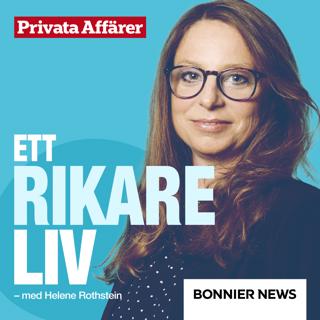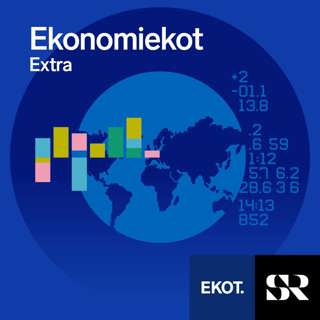
a16z Podcast: Ethereum, App Coins, and Beyond
Bitcoin quickly made its way from a whitepaper to a production network, which is pretty amazing when you think about it. But its scripting/ programming language was initially, intentionally, limited for a few reasons, which meant that building new apps on bitcoin wasn't always easy. Enter ethereum in 2014 -- a public blockchain platform that moved away from the "Swiss-army knife" approach to a more general protocol approach. This would in turn allow endless (and entirely new) use cases to be built on top of the blockchain, whether smart contracts or "app coins" that allow decentralized crowdfunding and decentralized business models. The results, at first glance, may seem just like a new way of financing a company. But it actually goes much deeper than that: They're really software protocols that are almost replacing centralized companies or what those companies would do. The possibilities are endless... In this episode of the a16z Podcast, Ethereum inventor and co-creator Vitalik Buterin joins Fred Ehrsam, co-founder of Coinbase (an a16z portfolio company) in conversation with Chris Dixon. The conversation covers everything from the politics of open source (and value of network effects even when those networks split) to the challenges of mainstreaming and scaling tech. And what happens next?
28 Aug 201650min

a16z Podcast: Pricing Free
Now that we know to price and plan early, price high -- especially for category-creating or "pre-chasm" businesses -- how do we handle freemium models? While free to premium is a great way to get bottoms-up, often viral traction in an enterprise, the challenge is figuring out just where and how to "draw the line" between where free ends and paid begins. Especially for open source, which while not necessarily free/mium, is also affected by these questions. And in that case, how does one balance the developer community and desire to "spread the religion" within and beyond the enterprise? All this and more in this episode of the a16z Podcast with Andreessen Horowitz general partners (who cover all things infrastructure) Martin Casado and Peter Levine and Go-to-Market and EBC operating head Mark Cranney. The trick, they tells us, involves layering ... like layers in a cake.
19 Aug 201632min

a16z Podcast: Pricing, Pricing, Pricing
"Raise prices." Regular listeners of our podcast have heard this advice more than once. But why is this so key and yet so hard for many technical founders? And how should startups go about raising prices -- or more specifically, creating value -- for their products? In this episode of the a16z Podcast, former sales VP Mark Cranney (and head of a16z's EBC and go-to-market practice for startups) and former startup founder (and general partner focused on all things infrastructure) Martin Casado talk to managing partner Scott Kupor about pricing for startups ... especially for category-creating businesses. It's not all "pricing, pricing, pricing" though -- there's another important "p" in there too!
14 Aug 201636min

a16z Podcast: The Meaning of Emoji
This podcast is all about emoji. But it's really about how innovation really comes about -- through the tension between standards vs. proprietary moves; the politics of time and place; and the economics of creativity, from making to funding ... Beginning with a project on Kickstarter to crowd-translate Moby Dick entirely into emoji to getting dumplings into emoji form and ending with the Library of Congress and an "emoji-con". So joining us for this conversation are former VP of Data at Kickstarter Fred Benenson (and the man behind 'Emoji Dick') and former New York Times reporter and current Unicode emoji subcommittee member Jennifer 8. Lee (one of the women behind the dumpling emoji). So yes, this podcast is all about emoji. But it's also about where emoji fits in the taxonomy of social communication -- from emoticons to stickers -- and why this matters, from making emotions machine-readable to being able to add "limbic" visual expression to our world of text. If emoji is a (very limited) language, what tradeoffs do we make for fewer degrees of freedom and greater ambiguity? How exactly does one then translate emoji (let alone translate something into emoji)? How do emoji work, both technically underneath the hood and in the (committee meeting) room where it happens? And finally, what happens as emoji becomes a means of personalized expression? This a16z Podcast is all about emoji. We only wish it could be in emoji!
3 Aug 201638min

a16z Podcast: Not all Network Effects Are Created Equal
From hardware and hardwires to smartphones and social, technology wants to connect. It's almost a native property of technology and especially software businesses, which is why network effects matter. "It was endemic to these technologies that they wanted to become connected and once connected, they become networks and once networks, they become network effects. Other products like cars or toasters or houses or whatever, aren't natively connected physically or through information sharing," observes James Currier. But not all network effects are equal -- not only can they be strong or weak, there are many different types depending on the business. Currier, who is the co-founder and managing partner of an accelerator (NFX Guild) that advises and runs a runs a program for all kinds of early-stage companies with network effects, shares their ever-evolving taxonomy for thinking about different types of network effects in this episode of the a16z podcast. These labels matter. It's not just words, but language that aids understanding -- and the corresponding growth playbook -- that can help build businesses with network effects, especially given the specific challenges they face. And finally, why did some companies with network effects take off but others didn't? The views expressed here are those of the individual AH Capital Management, L.L.C. (“a16z”) personnel quoted and are not the views of a16z or its affiliates. Certain information contained in here has been obtained from third-party sources, including from portfolio companies of funds managed by a16z. While taken from sources believed to be reliable, a16z has not independently verified such information and makes no representations about the enduring accuracy of the information or its appropriateness for a given situation. This content is provided for informational purposes only, and should not be relied upon as legal, business, investment, or tax advice. You should consult your own advisers as to those matters. References to any securities or digital assets are for illustrative purposes only, and do not constitute an investment recommendation or offer to provide investment advisory services. Furthermore, this content is not directed at nor intended for use by any investors or prospective investors, and may not under any circumstances be relied upon when making a decision to invest in any fund managed by a16z. (An offering to invest in an a16z fund will be made only by the private placement memorandum, subscription agreement, and other relevant documentation of any such fund and should be read in their entirety.) Any investments or portfolio companies mentioned, referred to, or described are not representative of all investments in vehicles managed by a16z, and there can be no assurance that the investments will be profitable or that other investments made in the future will have similar characteristics or results. A list of investments made by funds managed by Andreessen Horowitz (excluding investments and certain publicly traded cryptocurrencies/ digital assets for which the issuer has not provided permission for a16z to disclose publicly) is available at https://a16z.com/investments/. Charts and graphs provided within are for informational purposes solely and should not be relied upon when making any investment decision. Past performance is not indicative of future results. The content speaks only as of the date indicated. Any projections, estimates, forecasts, targets, prospects, and/or opinions expressed in these materials are subject to change without notice and may differ or be contrary to opinions expressed by others. Please see https://a16z.com/disclosures for additional important information.
1 Aug 201621min

a16z Podcast: We Gotta Talk Pokémon Go
Seemingly overnight, a single game -- Pokémon Go -- has taken people by storm. But it's a game that was technically years in the making, building on a legacy of creative intellectual property and technologies such as mobile, geomapping/ geolocation, computer vision, and more. And since "toys are the prelude to serious ideas" [Charles and Ray Eames] or "the next big thing will start out looking like a toy" [Chris Dixon via Clayton Christensen], we want to understand this phenomenon beyond the hype and the hope: Not only is Nintendo stock soaring, but people are sharing amazing stories of massive public play, meeting strangers, saving dogs, fighting crime, helping autistic children. So what are some of the mechanics behind the game and its viral growth (and is this also a case of network effects)? Is this the first in a new wave of phone-based lightweight augmented reality a.k.a. "light AR"? How will things change as our environments become even more sensorified or more people embrace "camera expression" (as with Snapchat)? And finally, what does an "appified game" vs. a "gamified app" mean for monetization? In this episode of the a16z Podcast, a16z deal team partners Anu Hariharan and Kyle Russell (in conversation with Sonal Chokshi) are joined by Product Hunt CEO and founder -- and cultural trendwatcher/maker -- Ryan Hoover to discuss all this and more. So how do we tell the difference between a fad and something that's here to stay?? photo: iphonedigital / Flickr The views expressed here are those of the individual AH Capital Management, L.L.C. (“a16z”) personnel quoted and are not the views of a16z or its affiliates. Certain information contained in here has been obtained from third-party sources, including from portfolio companies of funds managed by a16z. While taken from sources believed to be reliable, a16z has not independently verified such information and makes no representations about the enduring accuracy of the information or its appropriateness for a given situation. This content is provided for informational purposes only, and should not be relied upon as legal, business, investment, or tax advice. You should consult your own advisers as to those matters. References to any securities or digital assets are for illustrative purposes only, and do not constitute an investment recommendation or offer to provide investment advisory services. Furthermore, this content is not directed at nor intended for use by any investors or prospective investors, and may not under any circumstances be relied upon when making a decision to invest in any fund managed by a16z. (An offering to invest in an a16z fund will be made only by the private placement memorandum, subscription agreement, and other relevant documentation of any such fund and should be read in their entirety.) Any investments or portfolio companies mentioned, referred to, or described are not representative of all investments in vehicles managed by a16z, and there can be no assurance that the investments will be profitable or that other investments made in the future will have similar characteristics or results. A list of investments made by funds managed by Andreessen Horowitz (excluding investments and certain publicly traded cryptocurrencies/ digital assets for which the issuer has not provided permission for a16z to disclose publicly) is available at https://a16z.com/investments/. Charts and graphs provided within are for informational purposes solely and should not be relied upon when making any investment decision. Past performance is not indicative of future results. The content speaks only as of the date indicated. Any projections, estimates, forecasts, targets, prospects, and/or opinions expressed in these materials are subject to change without notice and may differ or be contrary to opinions expressed by others. Please see https://a16z.com/disclosures for additional important information.
22 Juli 201635min

a16z Podcast: Getting Network Effects
One of the biggest misconceptions around network effects (which are one of the key dynamics behind many successful and highly defensible software companies) is confusing growth with engagement. So how does one tell the difference between viral growth and network effects? How does one create network effects in different businesses? (Hint: it's not by accident!) How do you know when to hang in there because you see signs of network effects or just drop it and move on to something else? And what are some examples of teasing all of the above apart? In this episode of the a16z Podcast -- based on an event we hosted and slide deck we released all about network effects -- a16z partners Anu Hariharan and Jeff Jordan (who cover all things marketplaces, consumer, and more) share (in conversation with Sonal Chokshi) their observations, insights, and experiences. Because, why reinvent the, er, flywheel?
15 Juli 201648min

a16z Podcast: On Government as Software Builder, Not Just Buyer
We already know that the government is one of the largest IT buyers, but in many ways it is also an IT builder. Especially for areas where the government is doing something that no one else is doing, like running Medicare and Social Security -- i.e., unique services no other company out there is building software for. That's where the USDS comes in. Now almost two years old, the United States Digital Services is "a startup at the White House" responsible for mission-critical, citizen-facing services like improving Veterans' Affairs healthcare applications and benefit claims appeals, or student loan repayments. But can one really operate as a startup while embedded in an entity as complex and huge -- remember, each agency would be like a Fortune 500 company -- as government? It may not be move fast and break things, observes Mikey Dickerson, Google engineer-turned-administrator of the USDS (and one of the fixers of the original healthcare.gov), but "There's a world of difference between moving a little slower than you're used to and not moving at all." And it's not like large companies don't have huge, bureaucratic structures either. In fact, argues USDS co-founder and deputy administrator Haley Van Dyck, both government and big companies are going through the same shift right now, one where technology is moving "from what used to be the periphery into the core mission of business". So what are the similarities and differences between operating in government vs. big companies? How to draw talent from the private sector into the public sector while avoiding adverse selection (hint: through tours of duty)? And finally, what about fixing the procurement process (because "you don't buy software the same way you would buy a battleship")? Dickerson and Van Dyck share their thoughts on these issues, as well as peacetime/wartime tactics, in this episode of the a16z Podcast.
14 Juli 201623min






















